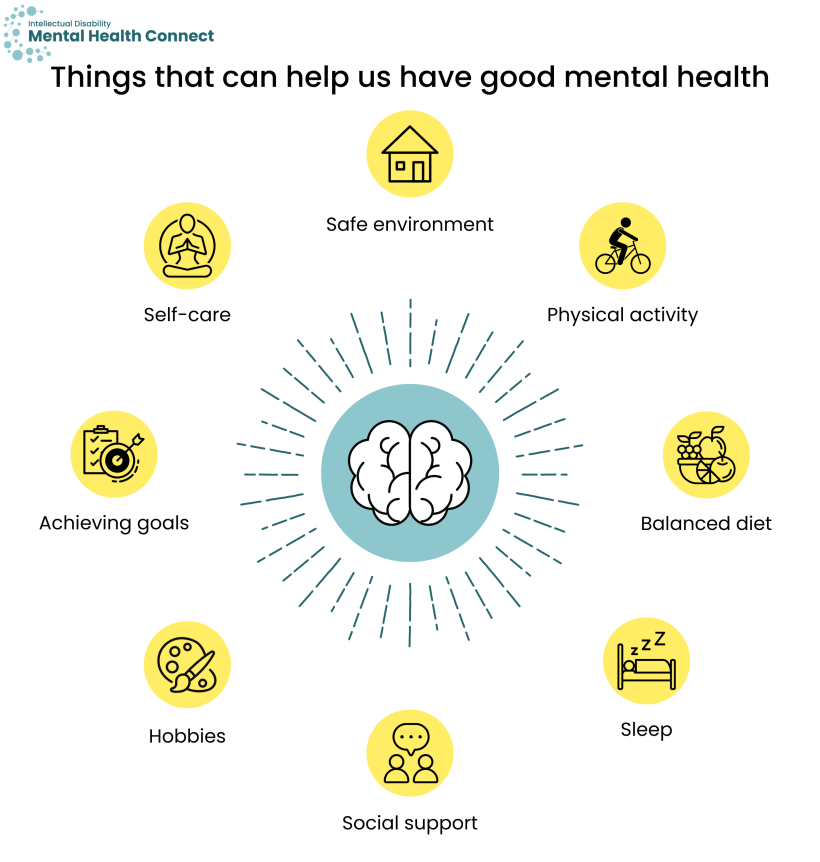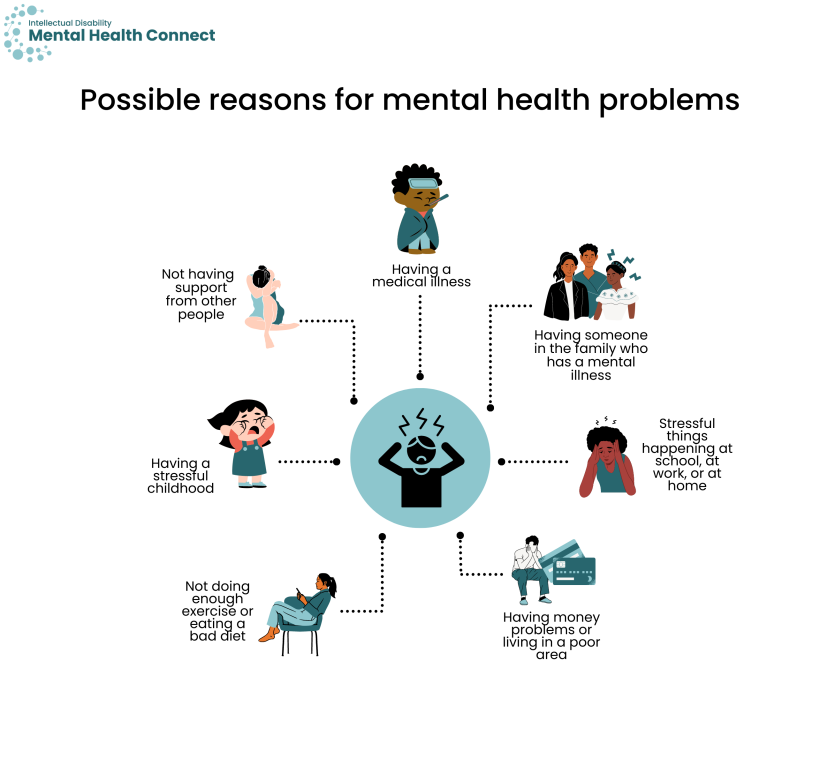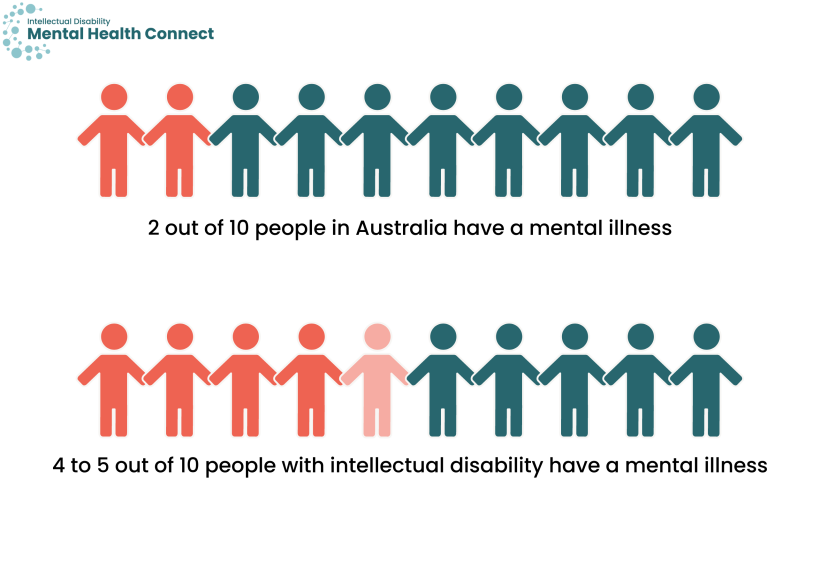What is mental health?
Mental health is about how you think and how you feel. Feelings are your emotions and moods. Feelings can make you feel from bad to good. You can spot different feelings by noticing:
- changes in how you think
- changes in how your body feels.
Some feelings that can make you feel good:
- Happy – You may have good thoughts and smile when you are happy.
- Calm – You may have nice thoughts and a relaxed body when you are calm.
Some feelings that can make you feel bad:
- Sad – You may have negative thoughts and feel your body is heavy when you are sad.
- Worried – You may have thoughts that concern you and feel your heart beating fast when you are worried.
What is good mental health?
Good mental health is when you:
- feel OK
- can do everyday things like going to work, seeing your friends
- have relationships with people
- can enjoy life.
Good mental health involves taking care of different parts of our life, including our physical health, lifestyle, environment and social wellbeing.
Some things that can help us to have good mental health include:
- being in a safe environment
- doing physical activity
- eating a balanced diet
- getting the sleep our bodies need
- having strong social support
- doing enjoyable activities and hobbies
- having a sense of meaning and achieving goals
- practising self-care and relaxation.

What is a mental health problem?
There are different words used to talk about mental health.
A mental health problem is when feelings start to bother you. It can also be when you do not feel in control of your feelings. There may also be changes to what you do every day.
A mental illness is when your feelings and thoughts make it hard to cope. You may also hear people refer to this as a mental disorder. A serious mental illness is when your feelings and thoughts make you feel so bad that you cannot cope at all.
Below are some names you may hear for mental illness.
- Anxiety is when you feel very worried or nervous about what is going to happen in the future.
- Depression is when you feel very sad or down for a while. You may not feel like doing the things you usually enjoy.
- Bipolar disorder is a mental illness where you feel very low and sad at times. At other times, you may have lots of energy and not be able to sleep.
- Psychosis is a type of mental illness. When someone has psychosis, they may:
- hear voices when no one is there
- see things that are not there
- believe things that are not true.
You may hear the word schizophrenia. Schizophrenia is a type of mental illness where people have psychosis.
You can find out more about types of mental illness at Beyond Blue.
Psychosocial disability is what the National Disability Insurance Scheme (NDIS) calls disabilities that happen because of mental illness. If people have serious mental illness for a long time and need help to cope, they may be able to get supports through the NDIS.
If you think you may have a mental health problem or mental illness, see the When to get help and Where to start to get help sections.
What can lead to mental health problems and mental illness?
There are many reasons why someone might have a mental health problem or a mental illness. Here are some possible reasons:
- stressful things may be happening at school, at work, or at home
- having someone in the family who has a mental illness
- having a medical illness
- not having a lot of support from other people
- having a stressful childhood
- not doing enough exercise or eating a bad diet
- having money problems or living in a poor area.

What is not a mental health problem?
Not all feelings that make you feel bad are a mental health problem. Everyone has feelings like being worried, scared, upset, sad, confused, or angry sometimes. Usually, they do not last long. If these feelings last for two weeks or more, or keep coming back, it may be a mental health problem or mental illness.
If you have been having bad feelings, you can talk to someone you trust such as your family, friends, disability worker or doctor.
Mental health and intellectual disability
Increased risk of mental illness
People with intellectual disability are more likely to have a mental illness than people without intellectual disability.

The risk of having a mental illness is higher for people with intellectual disability but this does not mean that you will actually have a mental illness. It is important to remember that every person is different.
It is important to know about the risk of having a mental illness so that you can get help early if you have symptoms. Getting help early may lead to better results. You can also do things to help reduce the chance of developing a mental illness such as exercising regularly and having a good diet. For more information see Tips for good mental health.
